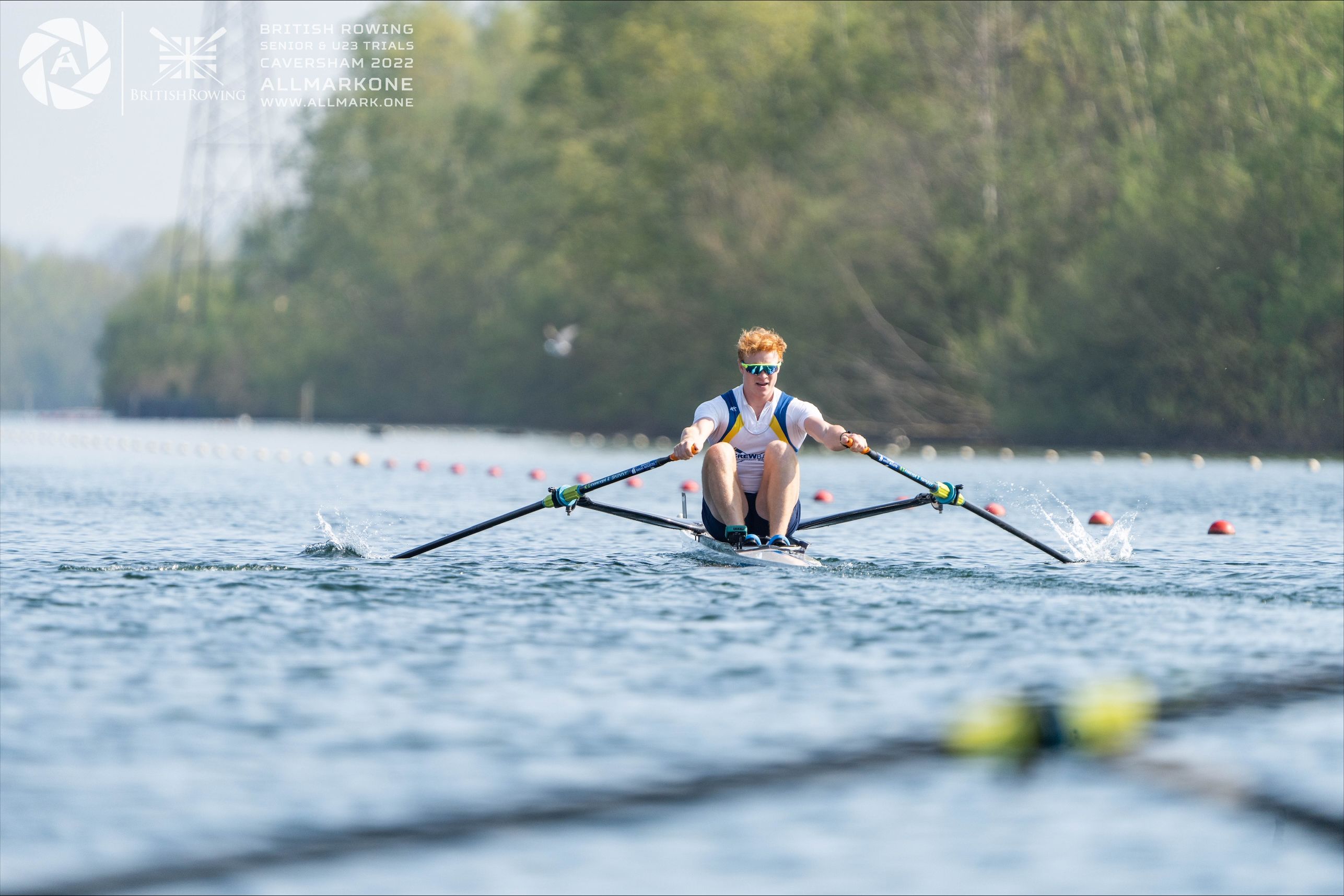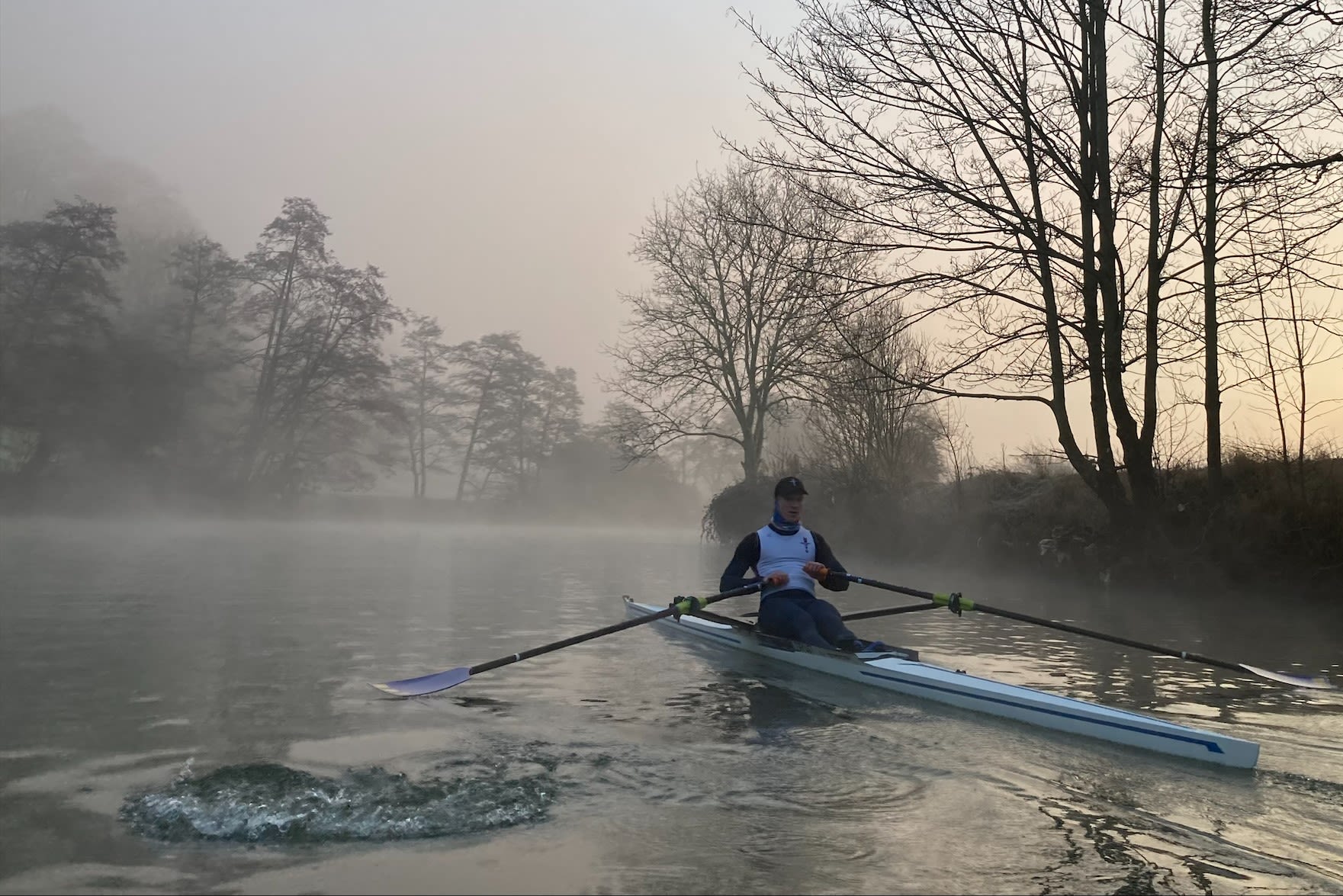Sporting chance
Cyclist George Gray, rower Angus Pollock and netball player Jayda Pechova reveal the realities of being a student-athlete (dirty kitchens and all), as well as what it takes to succeed.
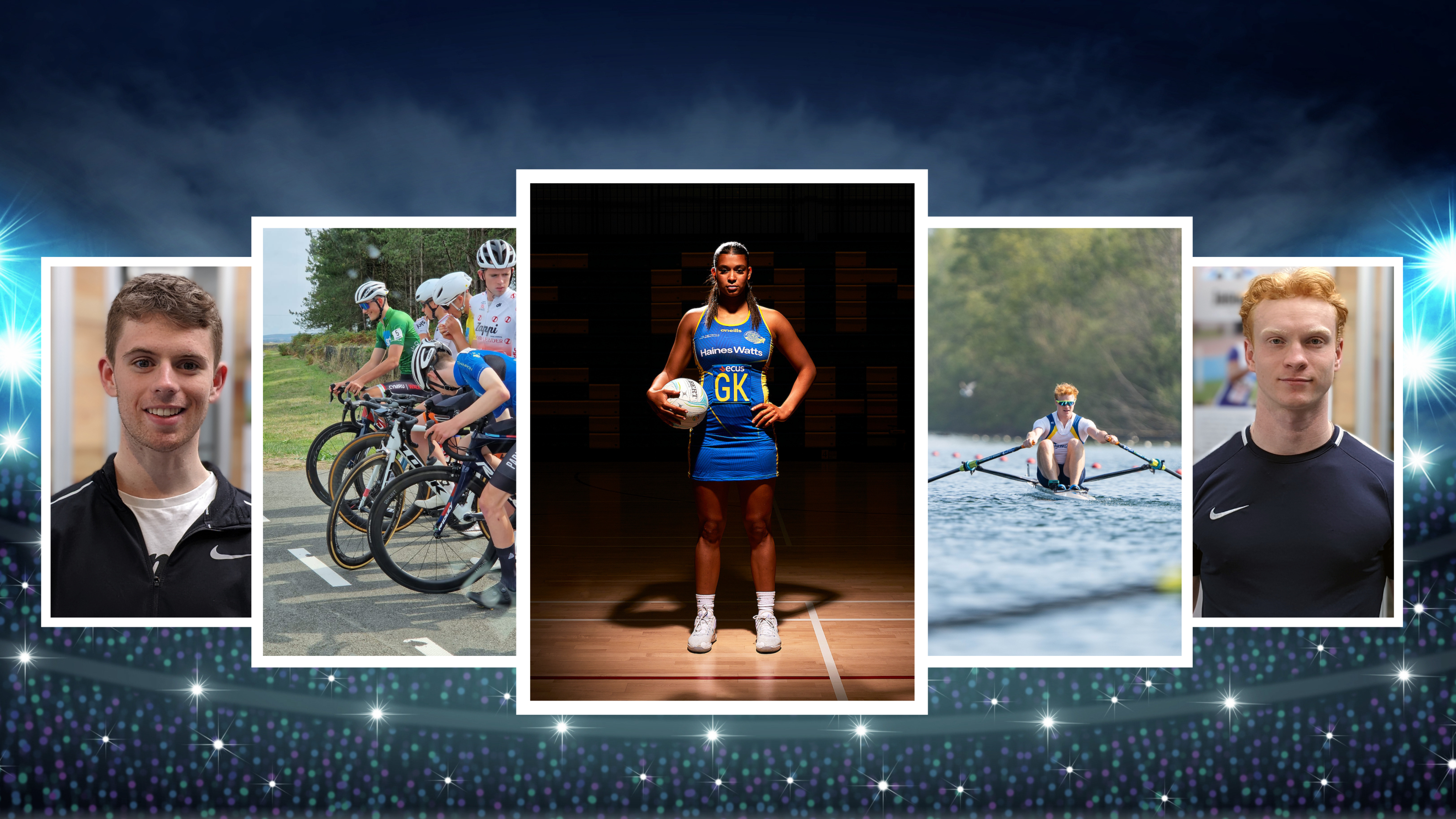
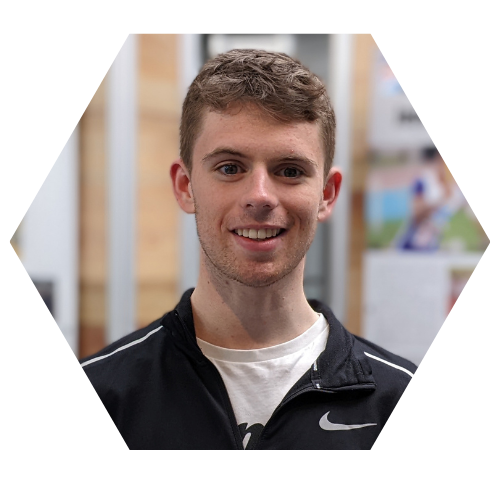
Road and track cycling star George Gray made his mark on the international circuit during the 2022 Junior Tour of the Basque Country, where he was also a stage winner. George takes us through his race-day routine, including psyching up to Kasabian and all-you-can-eat breakfasts...
Athlete: George Gray
Sport: Road and track cycling
Supported by: Matrix Sport Scholarship
Subject: Modern Languages (Spanish & Italian)
The night before a race, you try to get an early night but inevitably struggle to sleep. You wake up around 6am, double-check your kit bag and then you start getting into your race mentality. You'll probably listen to music – some drum and bass or indie rock like Kasabian, or Stone Roses if you’re feeling nervous.
“There's always the risk of crashing”
If you’re racing in northern Europe, you must get to the start line early. The roads are narrow and cobbled, so you need to get as near to the start line as possible to get up the front, which means a lot of waiting around.
45 minutes later and the race is underway. Something will inevitably go wrong, and you'll have to overcome that. There’s always the risk of crashing, too.
But you make it across the finish line. You grab a Coke and a pastry to get your sugar levels up and it’s time to enjoy the post-race chat with the other cyclists before eating some more. Most cyclists would say the Tour de France is as much an eating competition as it is a cycling one.
"Cycling is such a freeing sport”
I started cycling when I was five with Grass Track – an outreach programme by British Cycling – essentially racing round a big field. It’s how Victoria Pendleton got into cycling. Then, in 2008, I was taken to see the Cycling World Championships at the velodrome in Manchester and that was really inspiring. I have a photo of Bradley Wiggins holding me as a small child.
Cycling is such a freeing sport – you’ve got so much control over how you want to train and how you structure a race. For me, there’s no better feeling than riding in the summer and disconnecting your mind from everything.
“It's hard to match other riders when you’re financially outgunned”
My dad worked in an international school and we travelled a lot when I was younger, which is when my love of languages began. It’s since come in useful when racing abroad – competitors are surprised when you answer in their own language and it’s a way of gaining respect so you don’t get bullied off the road.
To get to the highest echelons of cycling, people will sacrifice everything, so they won't really do A levels, let alone go to university. But I was determined that I wanted to study, so I chose Modern Languages (Spanish and Italian) and what attracted me to Bath were the incredible facilities and the support they give to student-athletes through the Dual Career programme and sports scholarships.
Cycling has fast become a financially elite sport. There’s so much technological advancement that prices for equipment keep rising – it's hard to match other riders when you’re financially outgunned. My scholarship has given me the means to travel to races and to get the kit to compete.
"The Olympics would be the pinnacle for me”
My goal is to break the 4km pursuit national record for Ireland in September and then hopefully I'll be looking at the Commonwealth Games, Europeans, Worlds and even the Olympics – that would be the pinnacle for me.
Pro cycling is a short-lived career – there's always new talent coming through. I’d really like to pursue it for as long as I can and then I’m keen to go into broadcast journalism in the future.
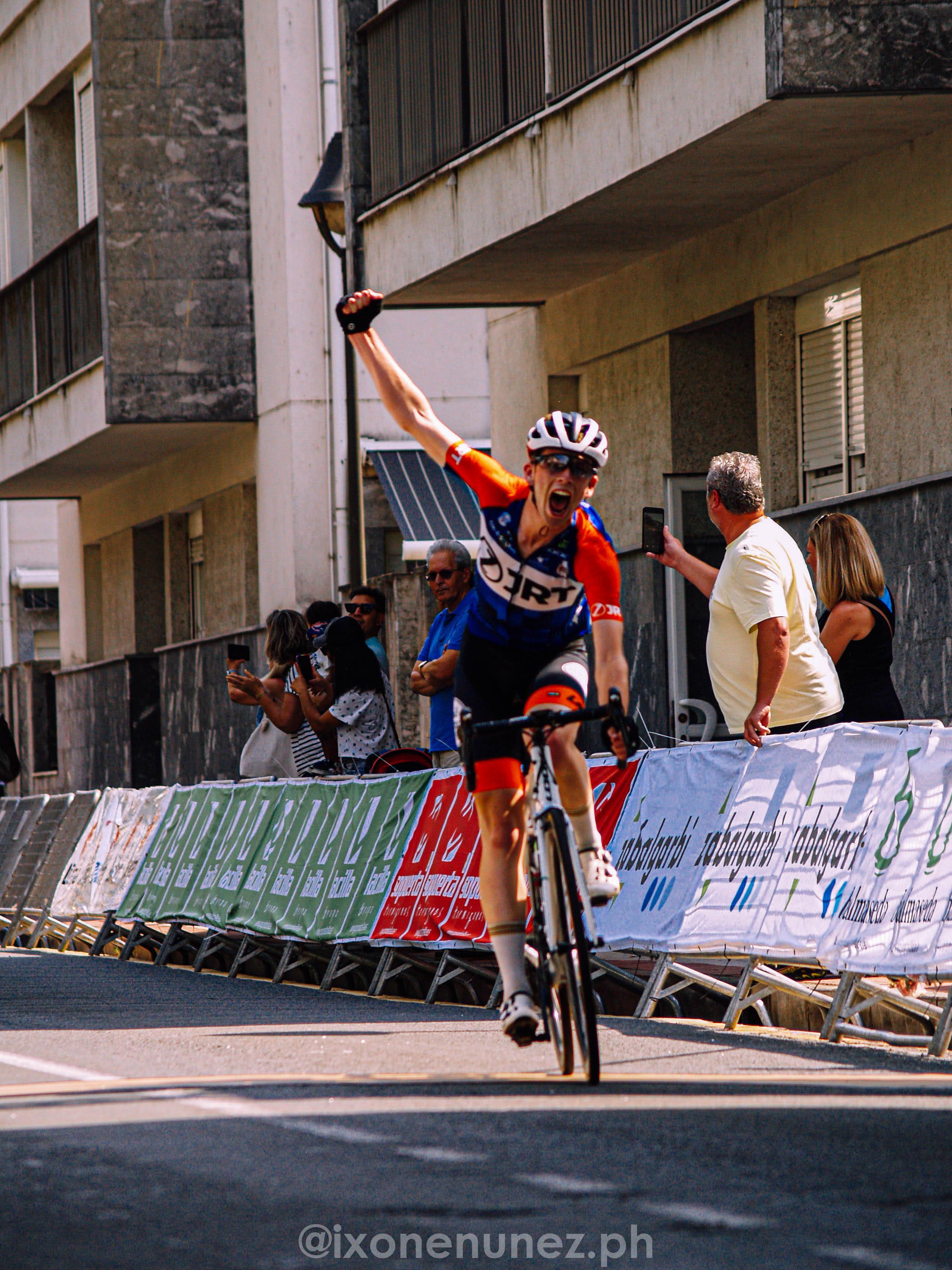
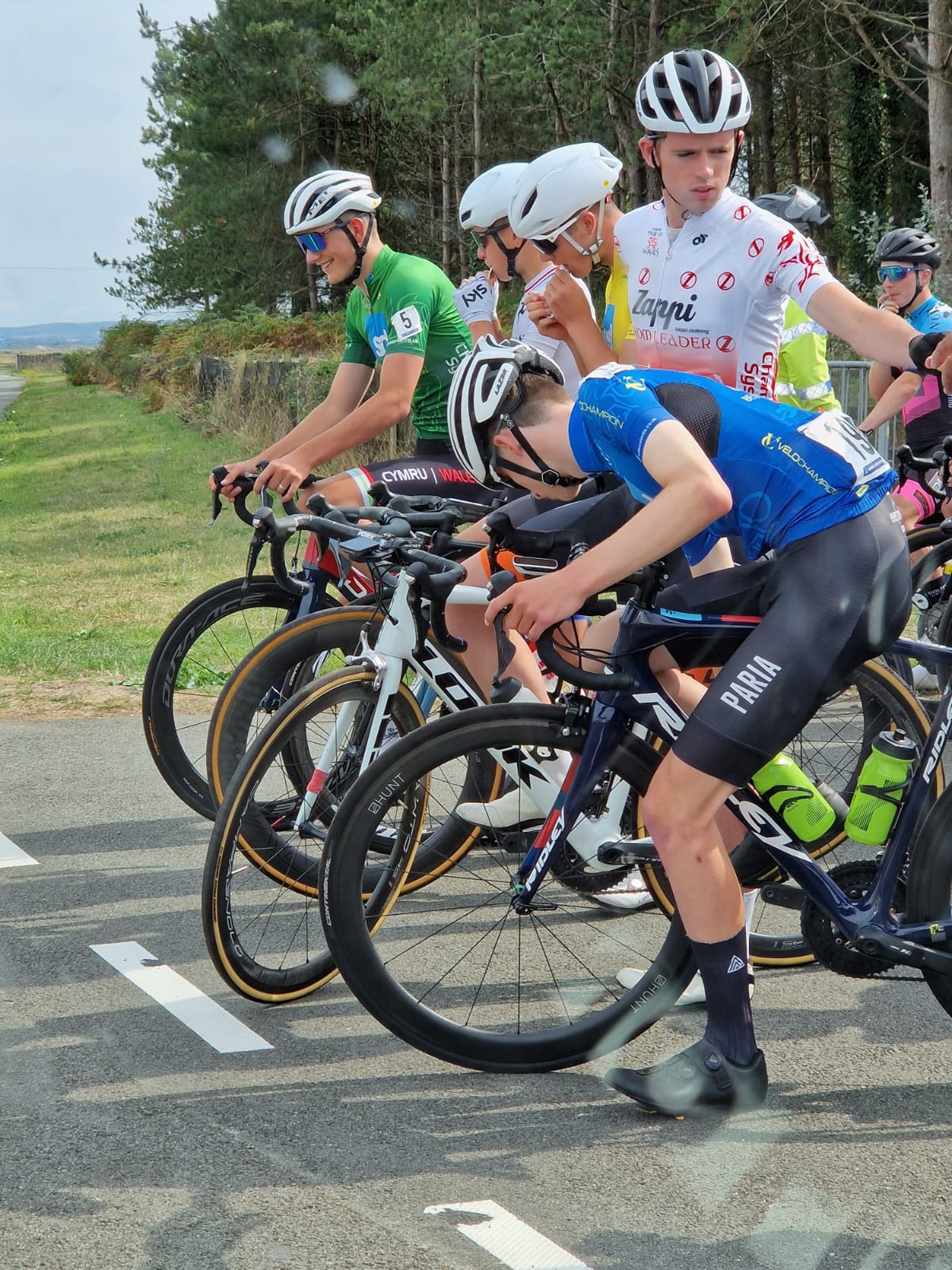
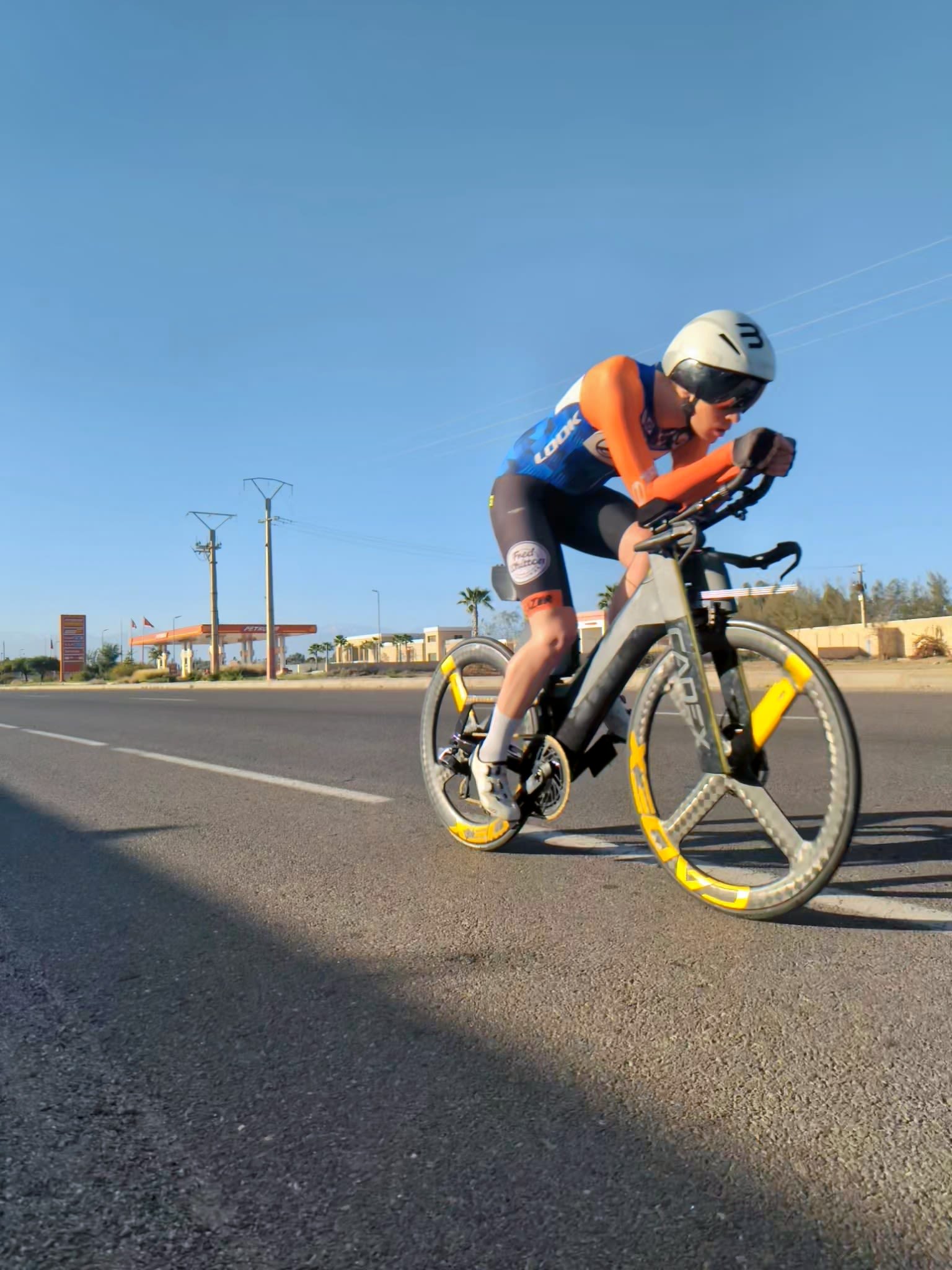
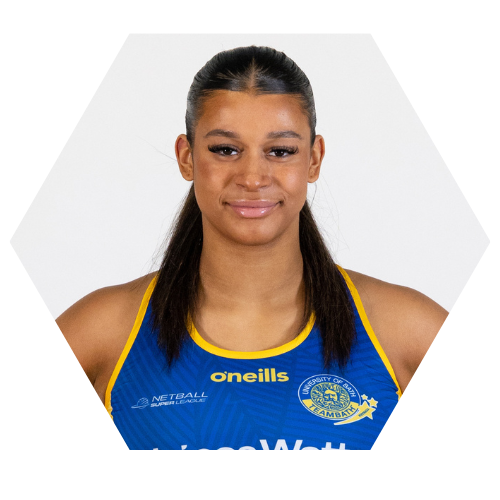
Jayda Pechova studies sports performance alongside playing for England Netball in the Future Roses squad, and Team Bath. Here’s how the talented goalkeeper pushed through rejection to have her most successful year yet.
Athlete: Jayda Pechova
Sport: Netball
Supported by: Trendell Sports Scholarship
Subject: Sports Performance
I was a gymnast for 12 years when my friend invited me to play in a netball match – that's where it all started. I love being part of a team and meeting so many different characters.
The friends I’ve made through netball motivate me to be better. They helped me to push through when I didn’t get into the England academy twice. The second time really knocked my confidence because I thought I’d played well, but there was nothing I could change except to work harder. It paid off and I was asked back at the end of the season: I’ve been in the England programme since.
“We were the underdogs”
I signed my first Super League contract in 2022 and made my debut a week later playing for London Pulse against Bath. It’s still one of my favourite games – we were the underdogs and ended up beating Bath by four goals.
Then I got nominated for BBC Young Sports Personality of the Year and SportsAid’s One-to-Watch Awards in 2022, which was unexpected. When I look back on what I’ve achieved, I realise I’ve done quite a lot and I’m really proud of myself.
I’ve started at Bath this year, studying sports performance, while playing for England and Team Bath. It was the best place for me, because it’s all under one roof. Everyone on my course is involved in sport in some way so we've got common interests, and my tutors are very supportive. They make sure I stay on top of everything, like when I had to take time out to compete in the Fast5 Netball World Series in New Zealand last October.
Since coming to Bath it’s been a big step up in training: from once a week in college to five times a week at uni. On a typical day I wake up at 6am, get to the gym for a strength and conditioning session, then I'll go to lectures during the day and train again in the evening. I’ve needed more kit than ever and the scholarship has really helped.
We usually do video analysis on a Monday night before training – reviewing past games or watching footage of our next opposition to decide what the gameplan will be.
"My goal is to be in the Roses squad”
It can be difficult being a student-athlete when it comes to eating well. There isn’t a lot of fridge space and the kitchen in shared accommodation gets pretty messy! But making sure you eat enough carbs and protein is important because it’s a big part of recovery.
Nutrition is really important when you’re in camp with the England squad, which is an intense four days of training and living together. I really enjoy it, although it can be intimidating when you’re marking a Roses player! My goal is to be in the Roses squad and see where netball can take me. I want to take every opportunity I can get.
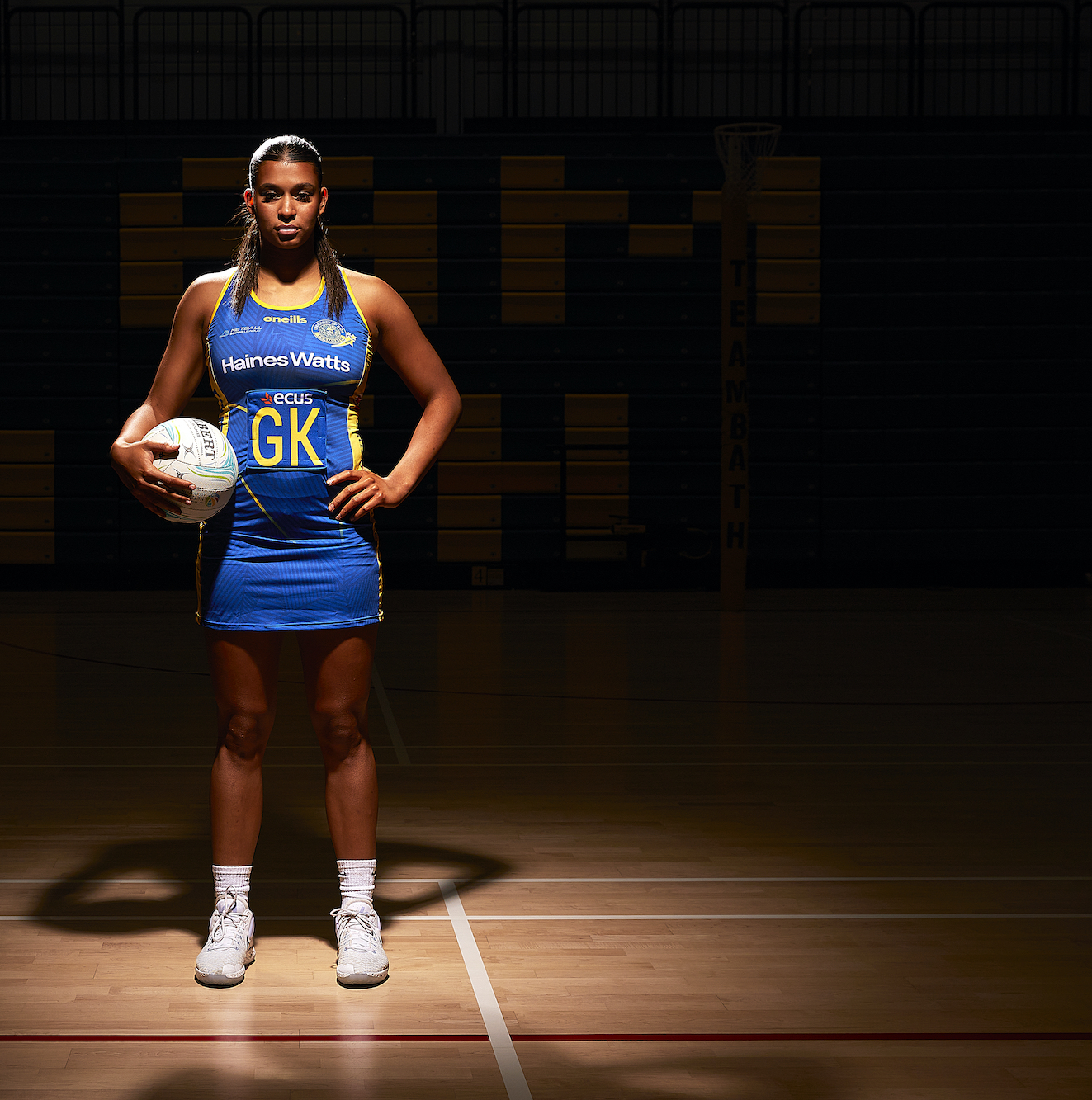
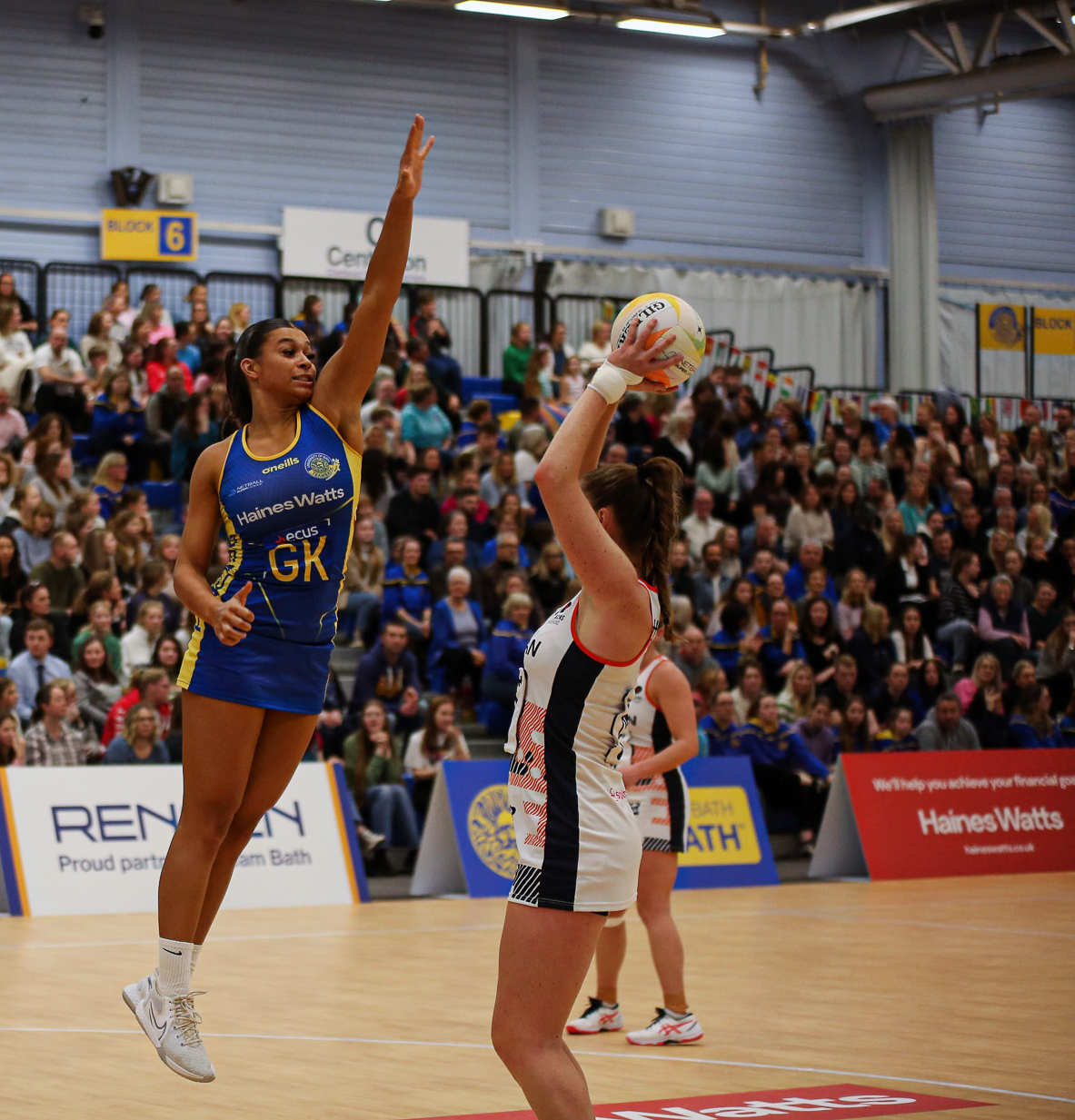
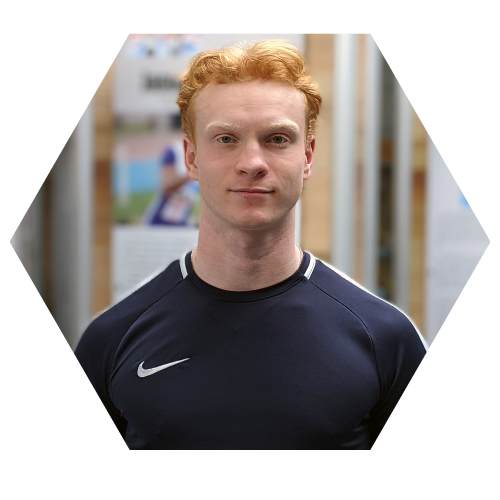
Angus Pollock is a member of the GB Rowing Team Start programme at the University of Bath and was the fastest U21 sculler in national trials during the 2021-22 season. Angus shares his army ambitions and how he overcame the disappointment of injury.
Athlete: Angus Pollock
Sport: Rowing
Supported by: Goldsmith Sports Scholarship
Subject: Aerospace Engineering
I had to choose between rowing and hockey at school and my mum encouraged me to follow in the footsteps of my family and go for rowing. Plus, she thought it was a safer sport – my face was a magnet for hockey sticks. It turns out you can get just as many injuries from rowing…
I train in the Olympic pathway squad and the University crew. Sport was part of what drew me to Bath, along with it being a good place to study engineering
“I burn 4-5,000 calories a day, so I need a lot of food”
A typical day starts at 5.30am for a session on the water and then either the indoor rowing machine or the bike, followed by strength and conditioning training. I manage two, sometimes three, sessions per day, six days a week. A quote I like is: ‘motivation is doing what needs to be done when you want to do it, whereas discipline is doing what needs to be done when you don’t want to do it’. I think that sums up rowing.
I burn 4-5,000 calories a day, so I need to eat a lot of food – that’s where the financial support of the sports scholarship really helps, along with competition travel expenses. I have two breakfasts, followed by a smoothie packed with peanut butter and berries for a surge of calories to set me up for the day at uni.
I study aerospace engineering and we’re building a rocket now. It’s a tough course but as a student-athlete, I have the option to split my third year over two academic years to give me more time to train and study. After graduating, I hope to use my skills to serve in the army.
“Having the right mindset is important”
Rowing puts you as far in the pain game as you can possibly go, so every session you’re expanding your comfort zone and that’s taxing mentally as well as physically. Having the right mindset is important, especially when dealing with illness and injury.
I got a rib stress fracture a week before I was due to fly out to Belgium for the European Championships last year. I was incredibly upset, but in the end I realised that the process was more important to me than the product, which gave me the motivation to get through the rehab and continue.
"There’s nothing that’s going to stop me”
Rowing for GB is my main goal, but this year I’m really looking forward to BUCS [British Universities & Colleges Sport] regatta – we have an incredibly talented sculling squad and we’re hoping to do very well for Bath – and there’s Henley Royal Regatta, too. Then there’s the World Championships next year and I will do everything I can to accomplish my goals.
